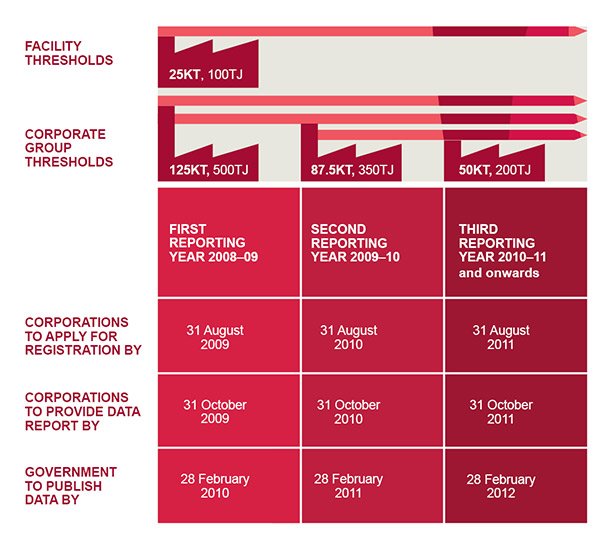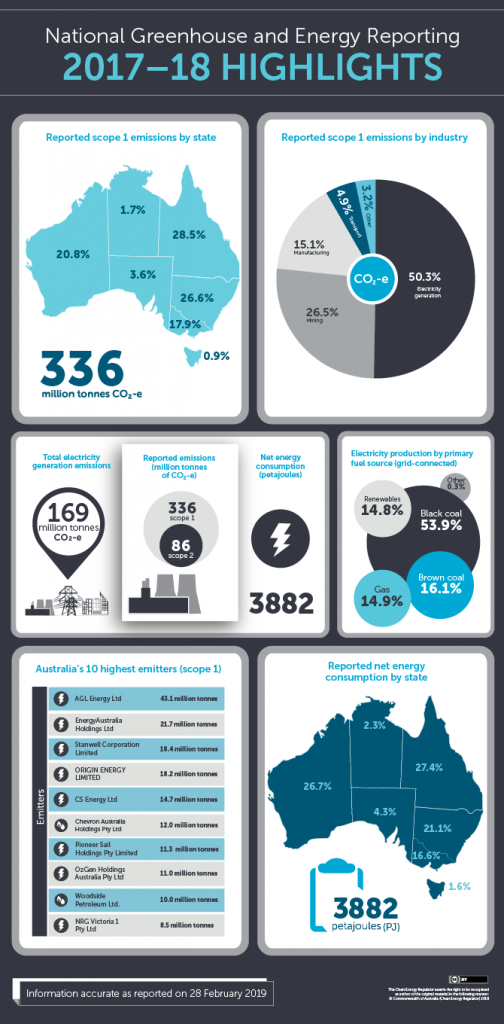Reduce energy costs with a sustainability plan
June 15, 2020Financial Sustainability: Reduce electricity costs with Solar and Energy Monitoring Systems
July 9, 2020Continuing from our previous blog entry, this discussion looks at reporting under the National Greenhouse and Energy Reporting Act 2007 (the NGER Act). The Australian, State and Territory governments developed the National Greenhouse Strategy , released in 1998, to provide the strategic framework for advancing Australia’s domestic greenhouse response and for meeting current and future international commitments. The strategy is the primary mechanism through which Australia’s internal commitment to reduce the threat of climate change will be met. However, in more recent years there appears to be no national consistent bi-partisan energy and climate-change policy.
The NGER Act established a national framework for the reporting and dissemination of information about greenhouse gas (GHG) emissions energy use and energy production of registered corporations. Key features of the NGER Act are:
- Reporting of GHG emissions, energy use and production by large corporations.
- Public disclosure of corporate level GHG emissions and energy information.
- Consistent and comparable data available for decisions making.
The objectives of the NGER Act, as stated in the legislation, are to:
- Inform government policy and the Australian public
- Help meet Australia’s international reporting obligations
- Assist Australian, State and Territory government programs and activities
- Avoid the duplication of similar reporting requirements in the states and territories.
Electricity consumption is often a large source of GHG emissions for many companies and has an important role to play in achieving your emissions reduction target. It is a large source of opportunity for abatement and innovation. This will require stable and effective emission reduction policies to support the necessary investment in long-life business assets while maintaining security and reliability to your customers.
Corporations that meet a NGER threshold (see Figure below) must apply for registration by the 31st of August following the reporting year in which they first trigger an NGER threshold. Registered entities must then submit their annual report by the 31st of October each year. Corporations that fail to comply with obligations under the NGER Act may be liable for penalties up to $340,000 and daily fines of up to $17,000.

The following information highlight is found at on the CER website.

Please contact Susmet to assess whether your company is likely to reach the NGER thresholds and therefore trigger the NGER registration and reporting requirements.
Disclaimer:
This blog is part of a continuing series discussing sustainability and energy management issues. Contributions featuring achievements, techniques, products, and processes are welcome. Please feel free to contact Susmet to suggest ideas on future issues.
Whilst every effort is made to see that no inaccurate or misleading data, opinion or statement appears in this blog, Susmet accepts no responsibility or liability whatsoever for the consequences of any such inaccurate or misleading data, opinion, or statement.
